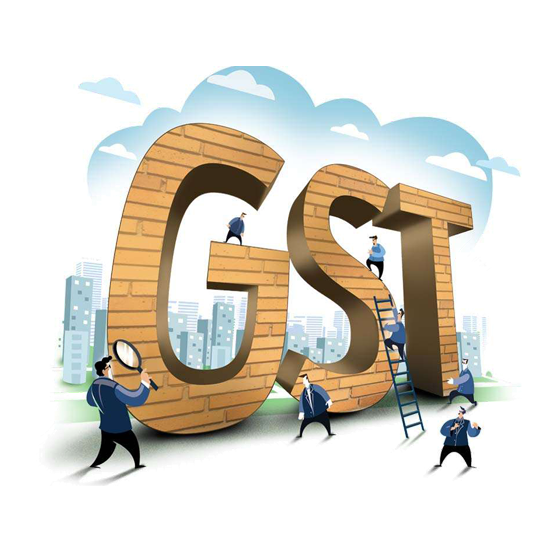- Business Startup
- Startup-Indian Entities
- Startup-Foreign Entities
- Business/Entity Conversion
- Business Registration
- Tax & ROC
- Yearly Tax Compliances
- Income Tax Return Filing
- ITR for Salaried Individuals/ Pensioner
- ITR for Capital Gain
- ITR for Companies
- ITR for House Property Income
- ITR for Income from Business
- ITR for Individuals having Share Trading
- ITR for NRIs and Resident with Foreign Income
- ITR for Partnership Firm/AOP/BOI
- ITR for Presumptive Income
- ITR for Speculation Business
- ITR for Trust, NGO and Companies
- Advisory on Tax Savings
- TDS Return Filings
- LTCG Filing and Advisory
- Income tax Notice Compliance
- Basic
- Standard
- Premium
- ITR for House Property Income and Other Source Income
- ITR for Capital Gain
- ITR for NRIs and Resident with Foreign Income
- ITR for Individuals having Share Trading or Casual Income
- ITR for Speculation Business
- ITR for Income from Business and Profession
- ITR for Presumptive Income
- ITR for Partnership Firm/AOP/BOI
- ITR for Companies
- ITR for Trust, NGO
- Advisory on Tax Savings
Yearly Tax Compliances
ITR for Salaried Individuals/ Pensioner
Income Tax Return Filing
- GST
- GST Registration (₹799)
- GST Accounting
- GST Return Filing
- GST Annual Return
- GST LUT Submission
- GST Taxpayer Registration
- GST Registration for Foreign Entity
- GST Registration Cancellation
- GST-Revocation of Cancellation
- GST Return Filing Packages
- E-way Bill Submission
- Ask an Expert-GST
GST Registration & Cancellation
- IPR
- Trademark
- Trademark Registration (₹5799)*
- Trademark (Individual) Registration
- Trademark with Logo Designers (Individual)
- Trademark with Logo Designers (Company)
- Trademark Objection Management
- Trademark Renewal
- Trademark Renewal (Company)
- MSME Compliance Trademark Registration
- Trademark Restoration
- Trademark Assignment
- Trademark Hearing
- Trademark Opposition
- Trademark Infringement
- Trademark Investigation
- Trademark Logo
- Copyright
- Copyright Registration
- Copyright Objection
- Computer Software Copyright
- Logo Copyright for Goods
- Songs Copyright
- Sound Recording Copyright
- Logo Copyright for Service
- Artistic Work/Painting Copyright
- Cinematography Copyright
- Copyright a Book
- Literature/Dramatic Copyright
- Music Notation Copyright
- Phrase/Slogan Copyright
- Symbol Copyright
- Patent
- Design
Trademark
- Trademark
- Compliance
- LLP Annual Compliance
- Winding up of Inactive LLP
- LLP Winding up by NCLT
Initial Compliance
General LLP Compliance
Changes in company
LLP Annual Compliance/ Closure
- Pay Roll
- Company
- Blog
Continue shopping “Manage Payroll Services (Pro)” has been added to your cart.
TAX & ROC
To run a company, you need to adhere to statutory compliance. Therefore, annual compliance for businesses are needed to be filed before their due date. Taxcomate is a team of business compliance experts who can you.
ITR for Presumptive Income
ITR for Presumptive Income
- Overview
- Points to remember
- Process
The plan is designed to help businesses and professionals opting for presumptive taxation scheme or small taxpayers earning casual income like tuition income, interest income, etc. Taxcomate experts shall help you assess your tax liability and file your income return with CA-Assistance.
1. Services Covered
- CA-assisted Tax returns Filing
- Business hours CA-Support
- Documented follow up
2. Who Should Buy
- Businesses having annual turnover under Rs. 2cr and declaring income above 8%(no audit)
- Professionals & Freelancers having annual gross receipts under Rs. 50 lakh and declaring income at 50% or above(no audit)
- Any other person having a casual income.
3. Documents To Be Submitted
- Bank statements for the financial year
- Income and Expense statements
- Gross Receipts
- Form 26AS Tax Credit Statement
- Bank statement if the interest received is above Rs. 10,000/-
Frequently Asked Questions
Who can opt for the presumptive taxation scheme?
Only proprietors, Hindu Undivided Families(HUFs) and general partnership firms can opt for the scheme.
Proprietorships are not regulated by any particular Act, hence there is no registration. Every buiness needs registration under Shop & Establishment Act whether it is providing a service or dealing in goods. Other registrations such as GST etc depend upon nature of product/service.
consequatur.
What are the benefits under Presumptive Taxation Scheme?
The benefits include:
- No requirement to maintain books of accounts
- No requirement to get accounts audited
- No need to assess advance tax, advance tax is paid by 15th March of the previous year. Note:Any amount paid by way of advance tax on or before 31st day of March is also treated as advance tax paid during the financial year ending on that day. Note: The scheme applies only to resident assessee who is an individual, HUF, partnership but not limited liability partnership
I am a shopkeeper and wish to declare income less than 8% of my gross turnover. How can i do that?
If you declare income less than 8% of turnover and your income exceeds Rs. 2,50,000 (Individual Tax Slab), then you are required to maintain the books of account as per the provisions of section 44AA and has to get accounts audited as per section 44AB.
If your case falls under above category, you should opt for our Business ITR(Regular) plan
I am an insurance agent and my gross receipts are Rs. 40 lakh. Am i eligible under presumptive taxation scheme?
There are certains businesses which are explicitly not allowed to claim the benefits under the scheme. They include:
- Any business involved in the renting, hire or plying of goods carriages
- Any business related to agencies
- Individuals who receive commission or income related to brokerage
- Any individual who is involved in any profession mentioned under section 44AA(1)
- Insurance agents, since any income they receive is via commission
Can I file a revised return to correct a mistake in original return filed?
Yes, return can be revised within a period of one year from the end of the relevant assessment year or before completion of the assessment whichever is earlier. Filing of revised return is not part of the plan. Plan buyer is required to provide full and accurate details to avoid the need for any rectification in the originally filed return.
Am I required to keep a copy of the return filed as proof and for how long?
Yes, under the Income-tax Act legal proceedings can be initiated up to 4 to 6 years (depending upon case to case) prior to the current financial year.
However, in certain cases the proceedings can be initiated even after 6 years, hence, it is advised to preserve the copy of return for at least 6 years or maintain it as long as possible.
Points to remember while filing ITR
While filing the ITR, salaried persons need to keep several points in mind. According to Mittal, salaried persons should take care of following factors while filing ITR:
- Who should file ITR: In case the gross total income of an individual exceeds Rs 2,50,000 in the FY, subject to certain conditions, then he will be mandatorily required to file an income tax return. The limit is Rs 3,00,000 for senior citizens (Age: Between 60 – 80 Yrs ) and Rs 5,00,000 for super senior citizens (Age: more than 80 Yrs ). Further, if an individual wants to avail of any tax refund or has any assets outside India or wants to carry forward a loss under any head of income he will be required to file ITR.
- Choice of Right Form: The income tax department primarily provides the following for filing Income Tax Return viz., (1) ITR 1- is to be filed by a salaried individual, whose total income (including salary income and income from other sources) does not exceed INR 50 lacs. Further for filing ITR 1, the individual should not have more than one house property and his income from agriculture should not exceed INR 5000. (2) ITR 2- is to be filed by an individual if he has income from salary, more than one house property, income from capital gains and income from other sources (not having income from profits and gains of business or profession ).(3) ITR-3- is required to be filed by an individual if the individual has income from salary, house property, income from business or profession, capital gains and income from other sources. Therefore the individual is required to be very clear about the Form applicable for him.
- Tax Deducted at Source (TDS): TDS is deducted by the employer, bank. It can be checked by the individual on the website of TRACES. The salaried individual should make sure that the complete details of TDS deducted are getting reflected in 26AS as if the same is not getting reflected then the number of TDS being claimed may get disallowed.
- Submission of correct proofs: The person concerned should have genuine proofs of the amounts being claimed by him as a deduction for Eg: Rent receipt in case of claiming of HRA, health insurance premium paid, details of investments in mutual funds, home loan, life insurance, etc. the amount of Deductions and Investments declared to the company must have correct documentary proofs. As the claiming of deductions by furnishing wrong information might lead to a penalty ranging from 50% to 200%.
- Right Investment Planning and claiming of deductions under relevant sections: An individual should be very vigilant while making investments and should understand that each section has a specific limit up to which the deduction can be claimed. Eg: If the person pays life insurance premium, deposits money in provident fund and superannuation fund, mutual fund, repays housing loan (principal amount), etc. then he can claim deduction only up to the limit of Rs1,50,000, any excess investment made under the section cannot be claimed as a deduction. To claim a higher deduction from tax, he should invest in other sections. For example, Investment in the National Pension System, subject to the specified conditions, can allow him to claim additional deduction up to Rs 1,50,000.
- Disclosure of income: An individual should make proper disclosure of income while filing the ITR earned from various sources, including income from business or profession, capital gains, any prize or lottery or rental income from house property, etc. Any interest from the Saving Bank Deposit, Recurring Deposit, Fixed Deposit, or income from any other source like capital gains, etc. should be duly reported in the Income Tax Return. Any concealment of income or understatement of income may lead to a penalty of 50% of the tax to be paid and in case of any misreporting 200% of the tax is payable.
- Filing of Return within due date: Non-filing of Income Tax return within the due date may attract a penalty of Rs. 5,000 or more and interest at the rate of 1% on the outstanding amount of tax. Further, the individual may also lose the benefit of a set of losses if any.
- Furnishing Updated Particulars: The personal details such as PAN no., bank account, Email ID, and contact no. should be correctly mentioned. In case the details have changed over a period of time then the same should be updated, as one would receive the refund if any, in the bank account, the details of which have been furnished (so in case the previous bank account is changed, the refund amount will bounce), further all information as to the status of ITR will also be sent on the email id and phone no. provided.
ITR for Presumptive Income Registration
₹1,499.00
To make tax compliance easier, the income tax department has categorized taxpayers into many groups based on income and its source. So, you need to file your returns accordingly. Registers with ITR for Presumptive Income plan and enjoy the benefits
Benefits of filing Income TAX Returns ?
-
Avoid a maximum penalty of Rs 10,000, if your total income exceeds Rs 5 lakh.
-
Taxpayers are often served notices from the IT department for delayed & missed return submissions.
-
Most embassies and consulates require you to submit IT returns for the last 3 years.
-
You can carry forward losses against house property and depreciation.
-
Your Tax Return documents are proof of your financial investments and will be useful when you apply for a loan
-
You can claim tax refund; the earlier you file the sooner you will get the refund.


























